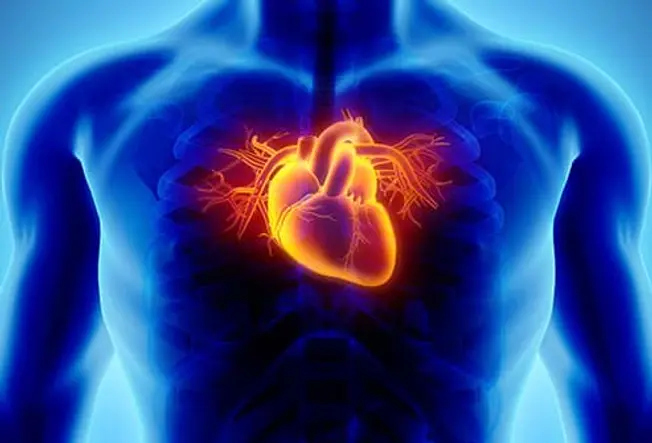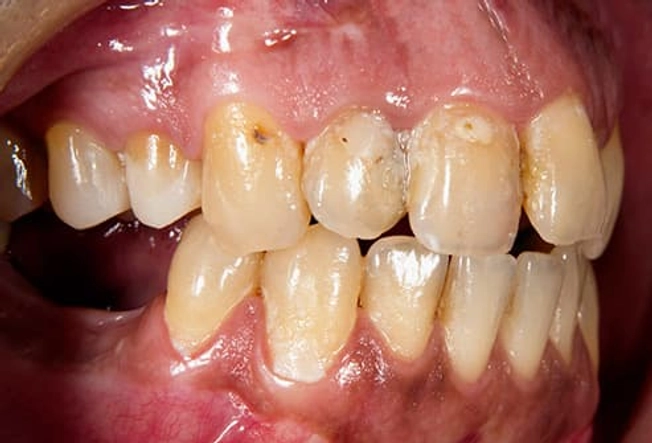Surprising Things That Lead to Heart Disease


What Is Heart Disease?
It's a group of conditions related to your heart. Some are problems with the muscle itself, the valves, or how it beats, including cardiomyopathy, atrial fibrillation, and heart failure. Others affect your blood vessels, like hardened arteries and strokes. Unhealthy foods, lack of exercise, and smoking are often what lead to heart disease. So can high blood pressure, infections, and birth defects. But other things might surprise you.

Cars, Planes, and Trains
Starting at around 50 decibels -- between the volume of a refrigerator humming and a friendly chat -- traffic noise can raise your blood pressure and the likelihood of heart failure. For each 10-decibel increase, your odds of heart disease and stroke go up even more. Scientists think it's tied to how your body reacts to stress.

Migraine
We're not sure why, but you're more likely to have a stroke, chest pain, and heart attacks when you get migraines, especially with auras. And if heart disease runs in your family or you've had heart problems or a stroke, you may not want to take medicines called triptans for your migraines because they narrow your blood vessels. Check with your doctor about the best way to control and treat your headaches.

Kids
Parents have a greater chance of getting heart disease, and the odds go up slightly with each child. Because that's true for both sexes, biology probably isn't behind it.
But women who get their first period before they're 12 or stop having periods before they're 47 are more likely to have a stroke as well as heart disease. Women's risk also goes up if they have had a miscarriage or had their ovaries or uterus removed.

Being Short
For every 2.5 inches less than average height, the chance of heart disease goes up about 8%. Shorter people tend to have higher cholesterol and triglyceride levels. It’s possible that the ways your body controls your height and your "bad" LDL cholesterol and triglycerides overlap somehow. It's also possible that being shorter leads to less-healthy choices and habits.

Loneliness
Having few friends or being unhappy with your relationships raises your odds of heart disease and stroke by about as much as secondhand smoke does. Feeling alone has been linked to high blood pressure and other effects of stress. So join a recreational sports team or your neighborhood walking group. You'll get both exercise and a stronger social network -- a twofer to prevent heart disease.

ADHD Medication
Although stimulant drugs such as dextroamphetamine and methylphenidate may help you focus, they can also raise your heart rate and blood pressure. Over time, that could lead to heart problems. Work with your doctor to decide if the benefits of your ADHD medicine outweigh the possible risks to your heart.

Long Hours at Work
More people who work at least 55 hours per week have heart disease than those who work 35-40 hours. That could be the result of a number of things: more stress, more sitting, perhaps drinking more alcohol, for example. You may brush off signs of trouble and put off seeing your doctor. If you tend to stay late, it's especially important for you to take care of yourself to avoid heart disease and stroke.

Gum Disease
Bacteria from your mouth, including periodontal disease, can get into your blood and set off inflammation in the lining of your arteries, which can lead to fatty buildup in them (atherosclerosis). Research shows that treating gum disease can lower the level of an inflammation marker called C-reactive protein in your blood. Doctors use this measurement, along with your cholesterol levels, to predict "cardiac events" like a heart attack.

Troubled Childhood
Things like violence, bullying, and abuse when you were younger -- including seeing harm done to others -- have been linked to high blood pressure, obesity, and type 2 diabetes in adults. And these health problems give you a greater chance for heart disease. The ongoing stress early in life can change how your body works. You may also be dealing in unhealthy ways with the effects of feeling unsafe while growing up.

You've Got the Flu
A 2018 study found that people ended up in the hospital with a heart attack six times more often in the week after they were diagnosed with influenza than in the year before and after. Doctors aren't sure why. It may be that when you're fighting an infection, your blood gets more sticky and clots more easily. It may have something to do with inflammation. (And there's another reason to get a flu shot.)

A Short Fuse
You're almost five times more likely to have a heart attack after you've been furious. In the 2 hours after an outburst of rage, the chance of a stroke or racing heartbeat goes up, too. You can't always avoid or control what sets you off, so find a way to deal with your anger in the moment and cool that fire. If it happens often, consider an anger management class or therapy to lower your long-term risk of heart trouble.
IMAGES PROVIDED BY:
1) Thinkstock
2) Thinkstock
3) Thinkstock
4) Thinkstock
5) Thinkstock
6) Thinkstock
7) Thinkstock
8) Thinkstock
9) Getty
10) Thinkstock
11) Thinkstock
12) Getty
SOURCES:
American Heart Association: "What is Cardiovascular Disease?"
Mayo Clinic: "Heart disease," "Anger management."
Journal of the American College of Cardiology: "Environmental Noise and the Cardiovascular System."
NIH MedlinePlus: "How Loud Is Too Loud?"
Stroke: "Migraine and Hemorrhagic Stroke."
American Journal of Medicine: "Migraine headache and ischemic stroke risk: an updated meta-analysis."
American Migraine Foundation: "Migraine, Stroke and Heart Disease."
Heart: "Women’s reproductive factors and incident cardiovascular disease in the UK Biobank," "Loneliness and social isolation as risk factors for coronary heart disease and stroke: systematic review and meta-analysis of longitudinal observational studies."
Medicine: "Association Between Age at Menarche and Risk Factors for Cardiovascular Diseases in Korean Women."
International Journal of Epidemiology: "Adult height and the risk of cause-specific death and vascular morbidity in 1 million people: individual participant meta-analysis."
New England Journal of Medicine: "Genetically Determined Height and Coronary Artery Disease."
Loneliness and acute stress reactivity: A systematic review of psychophysiological studies."
CDC: "Heart Disease and Stroke."
Psychology and Aging: "Loneliness predicts increased blood pressure: 5-year cross-lagged analyses in middle-aged and older adults."
Psychophysiology: "Loneliness and acute stress reactivity: A systematic review of psychophysiological studies."
ADDitude: "Which ADHD Medication Is Best? ADD Stimulants, Nonstimulants & More."
European Neuropsychopharmacology: Meta-analysis of increased heart rate and blood pressure associated with CNS stimulant treatment of ADHD in adults."
Case Reports in Cardiology: "Adult ADHD Medications and Their Cardiovascular Implications."
Lancet: "Long working hours and risk of coronary heart disease and stroke: a systematic review and meta-analysis of published and unpublished data for 603 838 individuals."
Journal of Dental Research: "'Gum Bug, Leave My Heart Alone!'—Epidemiologic and Mechanistic Evidence Linking Periodontal Infections and Atherosclerosis."
Journal of Applied Oral Science: "Influence of periodontal therapy on C-reactive protein level: a systematic review and meta-analysis."
Harvard Health Publications: "C-Reactive Protein test to screen for heart disease: Why do we need another test?"
National Heart, Lung, and Blood Institute: "Study links childhood exposure to trauma to increased risk of heart disease later in life."
Circulation: "Childhood and Adolescent Adversity and Cardiometabolic Outcomes: A Scientific Statement From the American Heart Association."
American Heart Association News: "As flu blankets the nation, a new study links the virus to heart attacks."
European Heart Journal: "Outbursts of anger as a trigger of acute cardiovascular events: a systematic review and meta-analysis."
SecondsCount.org: "Anger & Heart Disease: Try Thinking Positively, for Heart Health."